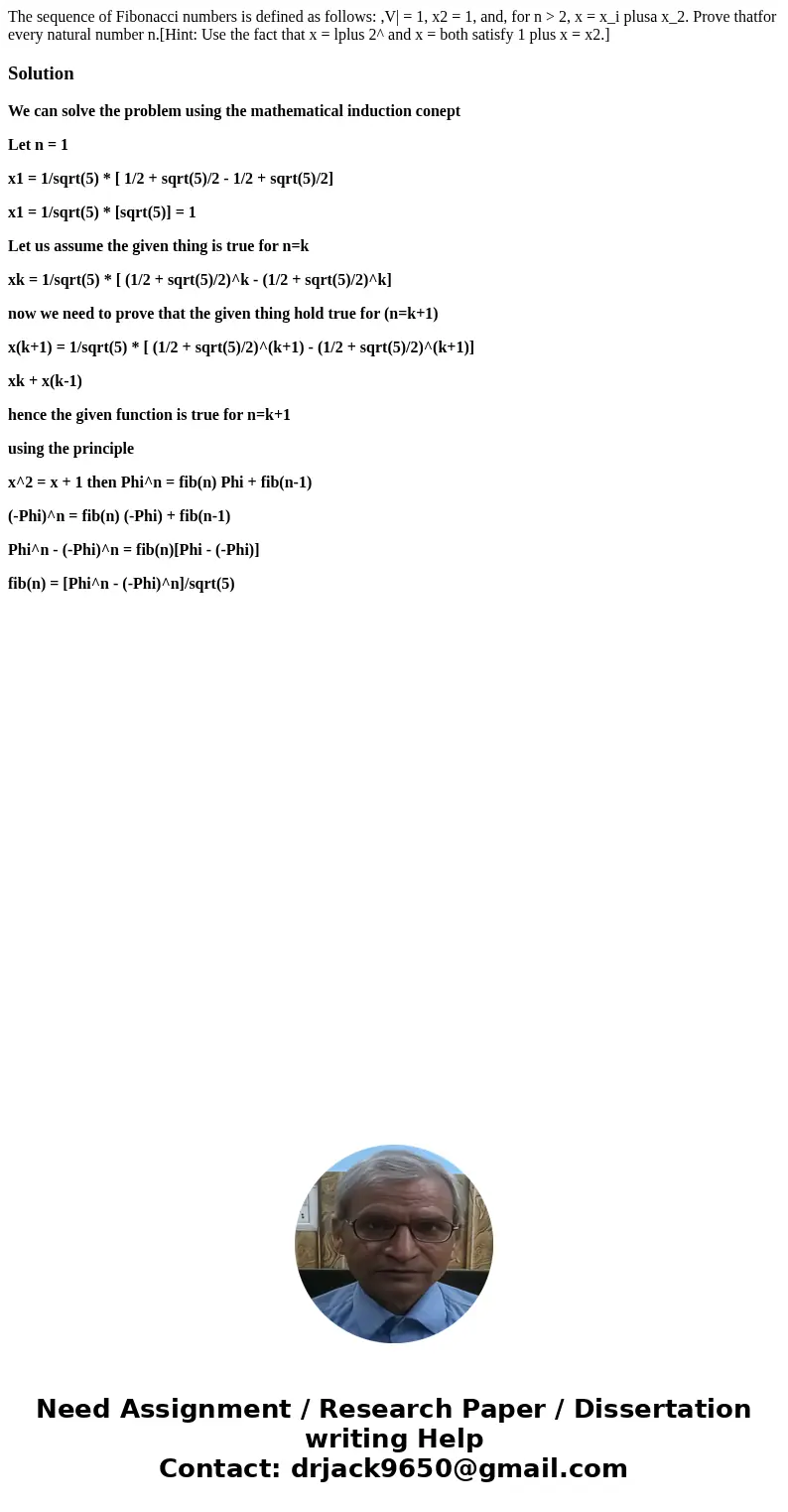The sequence of Fibonacci numbers is defined as follows V 1
The sequence of Fibonacci numbers is defined as follows: ,V| = 1, x2 = 1, and, for n > 2, x = x_i plusa x_2. Prove thatfor every natural number n.[Hint: Use the fact that x = lplus 2^ and x = both satisfy 1 plus x = x2.] 
Solution
We can solve the problem using the mathematical induction conept
Let n = 1
x1 = 1/sqrt(5) * [ 1/2 + sqrt(5)/2 - 1/2 + sqrt(5)/2]
x1 = 1/sqrt(5) * [sqrt(5)] = 1
Let us assume the given thing is true for n=k
xk = 1/sqrt(5) * [ (1/2 + sqrt(5)/2)^k - (1/2 + sqrt(5)/2)^k]
now we need to prove that the given thing hold true for (n=k+1)
x(k+1) = 1/sqrt(5) * [ (1/2 + sqrt(5)/2)^(k+1) - (1/2 + sqrt(5)/2)^(k+1)]
xk + x(k-1)
hence the given function is true for n=k+1
using the principle
x^2 = x + 1 then Phi^n = fib(n) Phi + fib(n-1)
(-Phi)^n = fib(n) (-Phi) + fib(n-1)
Phi^n - (-Phi)^n = fib(n)[Phi - (-Phi)]
fib(n) = [Phi^n - (-Phi)^n]/sqrt(5)

 Homework Sourse
Homework Sourse